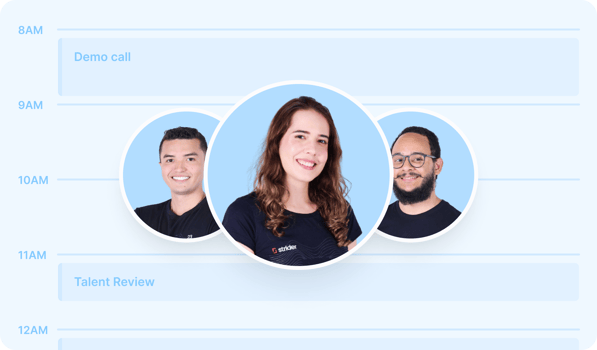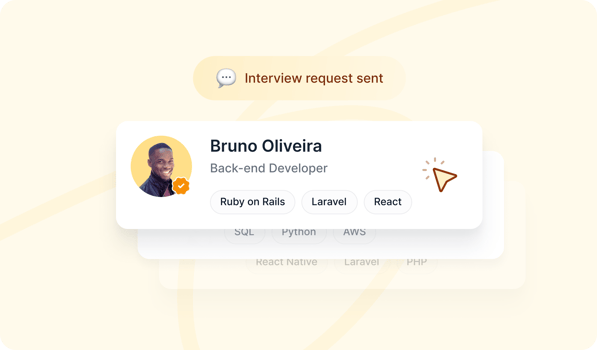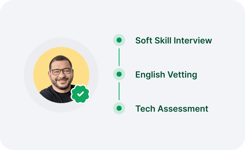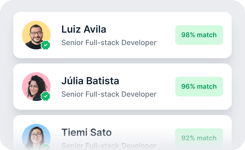Hire Remote .NET Core Developers
As technology evolves, businesses seek to remain competitive and stay current. .NET Core is one of the most popular and powerful web and mobile app development frameworks. Hiring .NET Core developers has become essential for many companies.
.NET Core is an open-source, cross-platform framework developed by Microsoft that allows developers to build web applications and services using .NET. It provides a modular and high-performance environment for developing web applications that run on Windows, Linux, and macOS. ASP.NET, on the other hand, ASP.NET is a web development framework built on top of the .NET Framework. It provides developers with a way to create dynamic web applications using a variety of programming languages such as C# and VB.NET.
In this article, we will discuss how to hire .NET Core programmers effectively, the skills to look for, the best practices to follow, and the things to consider when hiring .NET Core developers. We will also provide technical interview tips to help you evaluate their skills and experience.
What to look for when hiring .NET Core Developers
Technical Skills
When looking for .NET Core developers, it is essential to assess their technical skills as it is one of the most crucial aspects of their job. .NET Core developers should be proficient in using C#, .NET Core, and the .NET Framework, as well as have a good understanding of web technologies such as HTML, CSS, and JavaScript.
Additionally, knowledge of development tools such as Visual Studio and Git, and experience with database management systems like Microsoft SQL Server, MySQL, or Oracle, are also necessary. To evaluate their technical skills, hiring managers should ask them to solve coding problems, review their past projects, and assess their proficiency in using development tools and software.
Communication skills
Communication skills are equally important when hiring .NET Core developers. These professionals must communicate clearly and effectively with team members, clients, and stakeholders and write clear and concise documentation.
Good communication skills ensure that project requirements are understood and met and that any issues or concerns are addressed promptly and professionally. To assess communication skills, hiring managers should ask candidates about their past experiences working on projects with teams and how they communicate with clients and stakeholders.
Security
Security is another vital aspect to consider when hiring .NET Core experts. They should be able to identify potential security risks and have knowledge of security protocols to minimize the risks and vulnerabilities of a system. They should also be able to implement secure coding practices, including using encryption algorithms, authentication, and authorization techniques. To evaluate a candidate's security knowledge, you can ask questions about their experience with security protocols and how they have implemented them in past projects.
Performance optimization
Performance optimization is also a critical skill that .NET Core developers should possess. They should be able to optimize code, reduce response times, and enhance the overall performance of web applications. They should also be familiar with caching techniques, load balancing, and CDN (Content Delivery Network) integration.
To assess a candidate's ability to optimize the performance of web apps, hiring managers can ask about their experience with performance optimization, including how they identified performance bottlenecks and what techniques they used to optimize code.
Other experiences you might see on an excellent .NET developer’s resume are the following:
- Asp .NET Core Enterprise Application Development
- Cloud-Based .NET Core Development
- ASP .NET To ASP .NET Core Migration Services
- .NET Core Web App Development
- .NET Core CMS Development
- .NET Core Microservices Development
- .NET MVC Development
- ASP.NET Core Maintenance & Support
Top 5 .NET Core Interview Questions
When hiring a .NET Core software developer, asking the right technical questions to evaluate the candidate's skills and knowledge is essential. Here are the top five technical .NET Core interview questions to help you estimate the candidate's proficiency and suitability for the job.
Can you explain the difference between an abstract class and an interface in .NET Core?
This question can help you evaluate the candidate's understanding of object-oriented programming (OOP) concepts. In .NET Core, abstract classes and interfaces are used to implement OOP principles, and a developer should clearly understand the differences between the two.
A good answer should demonstrate that the candidate understands that an abstract class can have implementation details, while an interface only defines the methods and properties a class must implement.
What is dependency injection, and how is it used in .NET Core?
Dependency injection is a design pattern used in software development, including .NET Core applications, to decouple application components and make them more maintainable and testable. This question can help you evaluate the candidate's understanding of design patterns, specifically dependency injection.
A good answer should explain that dependency injection is a technique in which an object's dependencies are passed to it rather than created within it. It should also demonstrate that the candidate knows how to use dependency injection in .NET Core by registering dependencies in the Startup class and injecting them into the needed classes.
What is the difference between Entity Framework and ADO.NET in .NET Core?
Entity Framework and ADO.NET are used for database access in .NET Core applications. This question can help you evaluate the candidate software engineer's knowledge of these two technologies and their suitability for different scenarios.
A good answer should explain that ADO.NET is a low-level data access technology providing direct database access. At the same time, Entity Framework is a higher-level ORM that provides an object-oriented interface to the database. It should also demonstrate that the candidate understands the trade-offs between the two technologies and knows when to use one over the other.
What is middleware in .NET Core, and how is it used?
Middleware is a critical component of .NET Core applications that handles requests and responses between the client and server. This question can help you test the candidate's understanding of the middleware concept and its usage in .NET Core applications.
A good answer should explain that middleware is the software between the client and server and can perform authentication, caching, logging, and compression tasks. It should also demonstrate that the candidate knows how to use middleware in .NET Core by registering it in the Startup class and using it in the application's pipeline.
How do you handle errors and exceptions in .NET Core?
Handling errors and exceptions is a crucial aspect of software development, and asking this question can help you reckon the candidate's knowledge of error handling in .NET Core applications.
A good answer should explain that error handling in net development involves catching exceptions and taking appropriate action, such as logging the error, displaying an error message to the user, or retrying the operation. It should also demonstrate that the candidate knows how to handle errors in .NET Core using try-catch blocks and global error-handling middleware.







